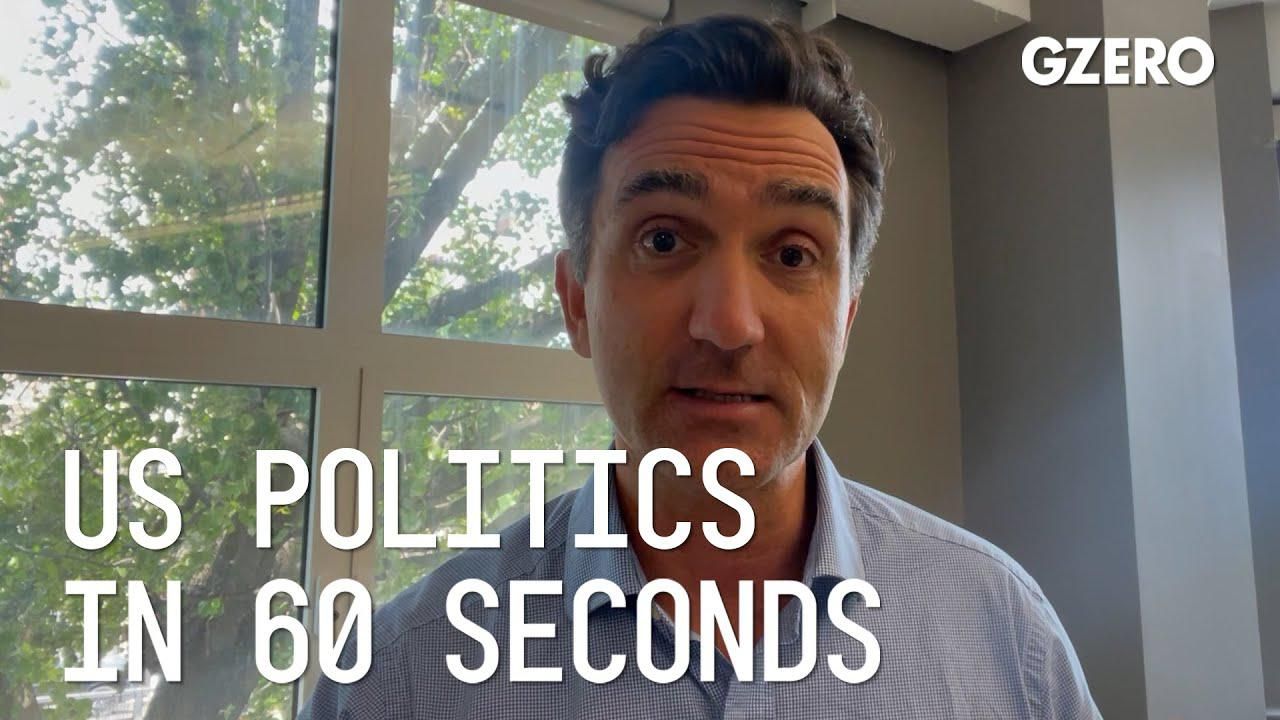US Politics In 60 Seconds
Democrats hope to use Jan 6 Trump focus to gain edge in midterms

Placeholder | US Politics :60 | GZERO Media

Jon Lieber, head of Eurasia Group's coverage of political and policy developments in Washington, shares his perspective on US politics:
What role will the January 6 riots play in the midterm elections?
This week there was another round of primaries that continue to show good news for Republicans as they are looking to take over Congress in November's midterm elections. Although issues like gun control and abortion continue to take up some political space, inflation and the economy remain the number one issue for voters and the data here is not good for President Biden. Inflation remains high at around 8% and the Federal Reserve has indicated that it's willing to raise interest rates until it has inflation under control, which could result in economic slowdown sometime later this year or early next year. This is a big drag for President Biden whose approval ratings remain low and as a result, polls show a strong advantage for Republicans in the midterm elections.
So far, this has showed up in primary turnout. Turnout among Republicans in primaries is up around one-third relative to the last midterm election while it is roughly flat for Democrats. This may not be as bad as it sounds since the last midterms were a wave election for Democrats, so sustaining the high level of engagement they had in 2018 is not necessarily a bad thing given the headwinds that they face this year.
One thing Democrats are hoping to do is to turn the midterm election away from being a referendum on current President Joe Biden and keep the focus on former President Donald Trump, who remains the most popular person in the Republican Party and continues to play a role in Republican primaries.
The primaries so far have really been a mixed bag for him. Several candidates he endorsed have come from behind to win, but few have managed to capture outright majorities of Republican electorate and he's had several high-profile rebukes including this week when across the country, several more conservative Republican candidates failed to beat moderate Republicans in primaries in California and elsewhere.
One of the tactics Democrats are using to keep the focus on Donald Trump is the January 6th commission, which will kick off a series of hearings this week that will last until September with a public hearing in prime time this Thursday. The commission is charged with investigating the attack on the Capitol that happened in the wake of the 2020 election. President Trump had a clear role in agitating the crowd that day and some on the committee argued that his role in attempting to disrupt the transfer of power was a criminal act.
The hearing organizers say they will be unearthing new facts about what wrong last January and they've been leaking for months information on President Trump's role in stoking the riots. The hearings will also focus on the role of outside organizer who planned the riots and on policing failures by the Capitol and DC police that day.
There's a clear political undertone to all of this. Many of the facts unveiled at the hearing are already well known and will land in a very polarized atmosphere. This could change, but it seems like there's very little momentum for legislative reforms at the moment to prevent this from happening again and building momentum would require a significant internal effort that has nothing to do with rallying the public which is what these hearings are ostensibly about. By stretching them out over several months, Democrats hope they will be able to sustain media attention on something other than inflation.
Thanks for watching. This has been US Politics In (a little over) 60 Seconds.
With close ties to both the US and China, can Singapore survive in an increasingly fragmented and chaotic world? Singapore’s President Tharman Shanmugaratnam joins Ian Bremmer on the GZERO World Podcast.
Think you know what's going on around the world? Here's your chance to prove it.
This week, Prime Minister Keir Starmer became the first UK leader to visit China in eight years. His goal was clear: build closer trade ties with Beijing.